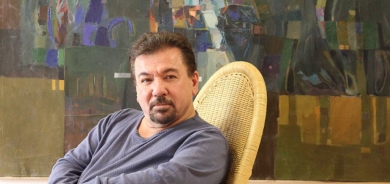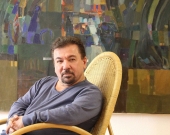George Martin, the Fifth Beatle: "All you need is ears"

London (dpa) - Though his collaboration with The Beatles made him famous, by the time George Martin met them in 1962 he had already worked with a string of acclaimed jazz musicians and comedians, and produced a number-one record for another British band.
The producer of hundreds of hit songs, in a career spanning seven decades, began playing music while still at secondary school. A self-taught pianist, he performed in local venues in north London.
Martin's career developed in the 1940s, when he studied classical music at London's Guildhall School of Music, played the oboe professionally and worked on BBC classical music programmes.
In 1950, he joined the music industry, specializing in recordings of Baroque classical music but developing an interest in jazz and pop. That interest led to him becoming head of the Parlophone record label for EMI in 1955.
Martin moved on to producing recordings by comedians who would later become household names, such as Peter Sellers, Spike Milligan, Peter Cook and Dudley Moore. He also worked with jazz artists including Stan Getz, Humphrey Lyttelton, and Cleo Laine and John Dankworth.
His first production of a number-one pop single was You're Driving Me Crazy by The Temperance Seven in 1961.
The following year he met and signed The Beatles, helping over the next eight years to make them the world's biggest pop band.
"We probably wondered why we'd got the comedy guy, not the music guy," singer-songwriter Paul McCartney told a BBC documentary on Martin's life in 2011.
Martin told the broadcaster his comedy recordings meant The Beatles were familiar with his work even though he "didn't know them from Adam."
"Once the boys decided they didn't want to perform any more - they just wanted to work in the studio - the building of [the album] Sergeant Pepper became a bit like working with a Peter Sellers record, because you were building a picture in the sand," Martin said.
Known to many as "the Fifth Beatle," Martin produced every Beatles recording from their first single, Love Me Do, to their final album, Abbey Road.
"Sir George transformed music recording with his creative flair, innovation and passion," Abbey Road Studios, the London recording suite made famous by Martin and The Beatles, said on Wednesday.
Martin's success opened up opportunities for him to work with dozens of other artists, compose the title music for James Bond films, and found his own production company and studios.
Over the next three decades, he produced scores of albums and singles for artists including Jeff Beck, Neil Sedaka, Ultravox, Kenny Rogers, McCartney and Elton John.
Talking to the BBC about The Beatles' song Yesterday, he modestly described his changes to the music as "utter simplicity."
In an earlier, self-effacing summary of his talent, Martin called the first of three books he wrote about his career "All You Need is Ears."
He describes the day in 1962 when he first heard The Beatles when their manager, Brian Epstein, brought a tape to his office in London.
"I don't know if you'd be interested, but there's a chap who's come in with a tape of a group he runs," Martin quotes a colleague as saying.
"I'm willing to listen to anything," Martin said. "Ask him to come and see me."
In a tribute on Wednesday, McCartney chose working on Yesterday as his favourite memory of Martin.
After Martin listened to McCartney's early version of the song, he suggested adding a string quartet to the recording.
"I said, 'Oh no George, we are a rock and roll band and I don't think it's a good idea'," McCartney said.
"With the gentle bedside manner of a great producer he said to me, 'Let us try it and if it doesn't work we won't use it and we'll go with your solo version," McCartney said.
"When we recorded the string quartet at Abbey Road, it was so thrilling to know his idea was so correct that I went round telling people about it for weeks," he said.
"His idea obviously worked because the song subsequently became one of the most recorded songs ever with versions by Frank Sinatra, Elvis Presley, Ray Charles, Marvin Gaye and thousands more."















